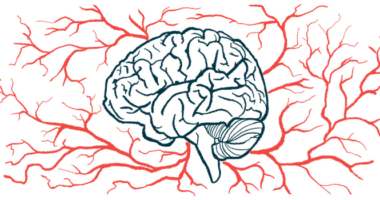The mental health challenges I face as a Black man with sickle cell
How columnist Dunstan Nicol-Wilson is working to protect his well-being

Smile, be polite, be eloquent, and watch your tone to ensure others feel comfortable.
These are my thoughts during daily interactions. Unfortunately, because of the negative preconceptions about Black men, my day-to-day is centered around putting others at ease. I often have to code-switch or behave in a more palatable way to fit in or receive the treatment I deserve, which is mentally draining.
This past week has been thought-provoking and mentally triggering for me, as I participated in a panel discussion to raise awareness about sickle cell disease and men’s mental health. As part of the discussion, we grappled with challenges that Black men face daily and explored how having a chronic condition like sickle cell can exacerbate these issues.
As a consultant hematologist and a counselor on the panel detailed some of these issues, I felt that it was my life being described. But it was also a poignant reminder that my struggles are not specific to me, that many people grapple with race, identity, and vulnerability.
A difficult intersection
According to the mental health charity Mind, ethnic minorities, particularly Black people, are far more likely to be detained in the hospital under the U.K.’s Mental Health Act. This fact causes me significant mental strain, knowing I have to carefully monitor my behavior when I’m in the hospital for a sickle cell crisis.
As a Black man, I don’t have the luxury of expressing my feelings without being labeled aggressive or drug-seeking. Feeling pressure to behave a certain way while in agonizing pain is mentally difficult. I must be friendly and kind to ensure I’m cared for, but that means I risk medical professionals not believing that I’m in pain unless I’m screaming in agony. Plus, I’m not excused from behaving poorly while in pain, which is dehumanizing.
This challenge is only compounded by the lack of awareness and support for people with sickle cell disease.
There are stark disparities between the amount of research funding and treatments available for sickle cell — a condition that primarily affects Black people — compared with other rare conditions that primarily affect Caucasian people. The lack of investment in sickle cell perpetuates the dialogue that Black people like me do not matter.
How I’m protecting my mental health
It wasn’t until I started reflecting after the panel discussion that I realized how many challenges I’ve dismissed or bottled up. And I don’t just mean my experiences, but the many examples of the mistreatment of Black people in society. You only have to scroll on social media to read about these injustices, and witnessing them daily is damaging.
To protect my mental health and manage my condition, I have to find ways to deal with these problems. Society isn’t going to change overnight, and I can’t bank on the goodwill of the few who are supportive and protective of my mental and physical health. I can only control my own behavior, so I have to do what’s best for me.
The speakers on the panel offered several tips for coping with the mental challenges of being a Black man with sickle cell disease.
First, it’s essential to be aware of how I talk to myself. I can be very self-critical about how others might perceive me. I need to be more positive and less critical when analyzing my actions.
Second, I should build in time to look after my mental well-being, perhaps by journaling or practicing mindfulness.
Finally, I need to check my behavioral patterns to ensure I’m not withdrawing from others. After a crisis, I can be particularly removed, so it’s essential for me to recognize when I’m doing this and work on connecting with others.
Note: Sickle Cell Disease News is strictly a news and information website about the disease. It does not provide medical advice, diagnosis, or treatment. This content is not intended to be a substitute for professional medical advice, diagnosis, or treatment. Always seek the advice of your physician or other qualified health provider with any questions you may have regarding a medical condition. Never disregard professional medical advice or delay in seeking it because of something you have read on this website. The opinions expressed in this column are not those of Sickle Cell Disease News or its parent company, Bionews, and are intended to spark discussion about issues pertaining to sickle cell disease.








SG
What are the qualifications for a consultant hematologist?
Charlene Sylvestre
This is such an important factor in sickle cell disease and how our warriors are perceived. Black men should not need to be stressed about how they are perceived when experiencing severe pain (which contributes to worsening pain) and essays like this are essential to change the narrative. Thank you for this. We as providers need to be cognizant of how we may contribute to this unfortunate perspective and instead approach all individuals with sickle cell with empathy and compassion in order to build trust with the patients we care for.